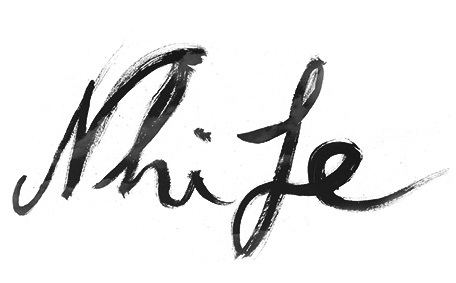Day #4: Introducing Domee Shi, Regisseurin und Storyboard-Zeichnerin
Hand aufs Herz, wer von euch bleibt im Kino so lange auf dem Platz bis die Credits vorbei sind? Es sind die wenigsten, die sich den gesamten Abspann anschauen, allerdings lohnt sich das Sitzenbleiben nicht nur für eventuelle Aftercredit-Szenen. Man bekommt einen Eindruck davon, wie viele Menschen es braucht, sodass ein Film überhaupt zustande kommen kann. Wir kennen die Schauspieler*innen, die Regisseur*innen und vielleicht ein paar Leute im Technikbereich, aber danach hört es meist auf. Die Frau, die ich euch heute vorstellen möchte, hat lange im Hintergrund gearbeitet.
Domee Shi ist eine chinesisch-kanadische Storyboardzeichnerin und Regisseurin bei Pixar. Als Storyboard-Zeichnerin hat sie für die Filme Alles Steht Kopf (jap, der Film, der vielen von uns geholfen hat, Depression zu verstehen), Die Unglaublichen 2 und Toy Story 4 Ideen visualisiert. So wie in fast jeder Branche, bekommen auch Frauen in der Filmbranche weniger Zugänge, gerade in den technischen Berufen. Es ist nicht so, dass Frauen es weniger machen oder können, aber sie haben es schwerer in diese Berufe einzusteigen. Letztes Jahr ist Domee Shi einem breiteren Publikum bekannt geworden. Sie hat als erste Frau überhaupt bei einem Pixar-Kurzfilm Regie geführt. Ziemlich traurig eigentlich, dass es in Pixars Firmengeschichte 35 Jahre und 20 Filme brauchte, bis eine Frau Regie übernehmen konnte. Gemessen daran, dass Pixar das wohl wichtigste und bekannteste Animationsstudio der Welt ist, ist dieser Umstand beschämend. Hinzu kommen Berichte von Anfang letzten Jahres, die ein sexistisches Arbeitsklima beschreiben oder Enthüllungen über das übergriffige Verhalten eines bekannten ehemaligen Pixar-Regisseurs.
Shis Arbeit und Kurzfilm wird deshalb einmal mehr als Schritt in eine bessere Richtung gesehen. Ihr Film Bao, der vor The Incredibles 2 gezeigt wurde, erzählt grob gesagt die Geschichte einer chinesischen Mutter, die den Auszug und die Selbstständigkeit ihres Sohnes verarbeitet. Der Film ist auf verschiedene Arten berührend und auch nicht nur inhaltlich, sondern auch innerhalb der Industrie bedeutend. Es ist nicht nur das erste Mal, dass eine Frau eine Geschichte in einem Bereich erzählt, der zumeist von weißen männlichen Regisseuren dominiert wird. Mit Bao kam eine Geschichte auf die Leinwand, die vielen Kindern zweiter Generation bekannt vorkommt: Die Eltern stammen aus einem anderen Land und haben bestimmte Vorstellungen für das Leben ihrer Kinder, während diese in eine andere, „westliche“ Richtung gehen. Zwar wird Bao aus der Perspektive der Mutter erzählt, ich hab aus verschiedenen Gründen trotzdem ein paar Tränen verdrückt und bin mir sicher, dass es andere, egal ob aus der Eltern oder Kinderperspektive, gleichermaßen taten.
Der Film verzaubert mit Details aus der chinesischen Kultur und scheut nicht davor zurück, auch düster zu werden. Bao wurde ein voller Erfolg und war für viele Kino-Gänger*innen das eigentliche Highlight vor Incredibles 2. Im Februar 2019 gewann Bao dann den Oscar für den besten Kurzfilm. Der Preis ging an Shi und ihre Prodzentin Becky Neiman-Cobb. Sowohl Domee Shi als auch ihr Film Bao sind echte door opener, also erste in ihrem Feld. Sie selbst hat in einem Interview mit NPR gesagt, dass sich in der Animationslandschaft etwas bewege und die Animationsstudierenden in den USA landesweit zur Hälfte weiblich seien.
Let’s be honest: Whenever you go to watch a movie at the theaters, do you stay in your seat to watch the credits? There aren’t too many people watching the whole screen credits but it pays off not only for after credit scenes but to see how many people it needs to create a movie. We know actors, directors but when it comes to the technical jobs we have few knowledge. The woman I want to introduce today worked most of her career in the background.
Domee Shi is a Chinese-born Canadian storyboard artist and director for Pixar. As storyboard artist she contributed to Inside Out (yes, the movie that helped most of us understanding depression and more), Incredibles 2 and Toy Story 4. As usual in many industries women have problems accessing the movie industry, especially when it comes to the technical professions. Last year Domee Shi got introduced to a broader audience. As the first woman ever she directed a Pixar short movie. It’s actually pretty sad that it took 35 years in Pixar’s history and 20 shorts until a women was able to direct. Let’s not forget that Pixar is probably the most well known and most important animation studio in the world which makes it even worse. Additionally, a former employee revealed the sexist working environment at the company and it got revealed that a famous Pixar director sexually harassed female employees.
That’s why Shi’s work and movie are seen as a step into a better direction. Her movie “Bao” was shown at the theaters before “The Incredibles 2”. It basically tells the story of a Chinese mom who struggles with empty nest-syndrome. The movie is touching because of may reason and also a milestone. Not only is it the first time a woman directed a short in an industry that is dominated by white men but Bao brought a certain story to the big screen. It is a story that us second generation kids know too well: The parents immigrated from another country and have certain expectations how we should live our lives while we adapt to a more “Western” lifestyle. Even though Bao is told from the mother’s perspective I still shed a couple tears and I’m sure that others, parents and kids did as well.
The movie amazes with details from Chinese culture and doesn’t shy back from getting a little dark. Bao was very successful and a lot of people named it the highlight of their Incredibles 2 experience. In February 2019 Bao won the Oscar for best short. Shi and her producer Becky Neiman-Cobb received the award. Shi and her movie are both real door openers. In an interview with NPR she said that there is “gradual shift in the industry because, before, animation was predominantly white and male, but now in animation schools all over the country enrollment is now over 50 percent female. (…)”.

